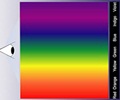- Ewen RB. An Introduction to Theories of Personality. New Jersey, USA: Lawrence Erlbaum Associates; 1993.
- Mathur SS. Health Psychology. Agra, India: Shri Vinod Pustak Mandir; 2010
About
Personality is indeed a complex concept to define, for it encompasses the gamut of an individual’s behavior, from perceptual tendencies to reactions given to a specific situation.
It is a controversial term to define and has garnered an uneasy consensus on its meaning. Personality takes into account, individual differences as well as the environmental demands put on the individual and society.

The term ‘Personality’ was coined nearly 2000 years ago, from the word persona. Persona literally means the ‘outer covering’ or ‘the mask’, which referred to the costume, worn by stage actors in that era. Several psychologists have tried to define the term ‘personality’ but the most approximate definition yet, of the term, has been given by G. W. Allport. According to Allport, ‘Personality is the dynamic organization within the individual of those psycho-physical systems that determine his characteristic behavior and thought.’
Allport reviewed some 50-odd definitions before coming to this conclusion. It states that: personality is dynamic, growing and changing, throughout one’s life span. It forms an organized pattern in a healthy person; it involves the inseparable union of physical and mental functions; personality is a complex system of variously interacting elements; it motivates or determines everything that we do.
Hence there is no correct or incorrect definition of personality. It can be defined in ways that are useful for a given purpose.
"Personality is to a man what perfume is to a flower." — Charles Schwab






